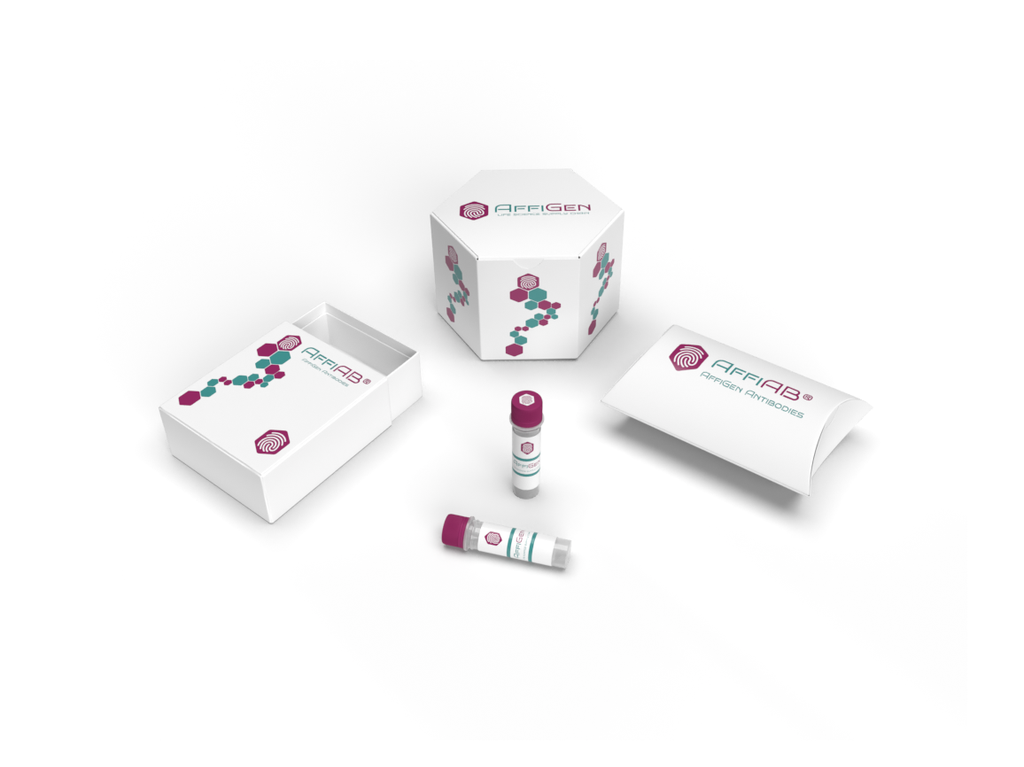AffiAB® Anti-KCNQ4 Antibody
Probably important in the regulation of neuronal excitability. May underlie a potassium current involved in regulating the excitability of sensory cells of the cochlea. KCNQ4 channels are blocked by linopirdin, XE991 and bepridil, whereas clofilium is without significant effect. Muscarinic agonist oxotremorine-M strongly suppress KCNQ4 current in CHO cells in which cloned KCNQ4 channels were coexpressed with M1 muscarinic receptors. Mutagenesis experiments were carried out by expressing in Xenopus oocytes KCNQ4 mutants either individually (homomultimers) or in combination with wild-type KCNQ4 (mut/wt homomultimers) in a ratio of 1:1, to mimic the situation in a heterozygous DFNA2 patient.
Antibody type
Rabbit polyclonal Antibody
Uniprot ID
SwissProt: P56696 Human; SwissProt: Q9JK97 Mouse; SwissProt: Q9JK96 Rat
Recombinant
NO
Conjugation
Non-conjugated
Host
Rabbit
Isotype
IgG
Clone
N/A
KO/KD
N/A
Species reactivity
Human, Mouse, Rat
Tested applications
WB, IF-Cell, IHC-P, FC
Predicted species reactivity
N/A
Immunogen
Synthetic peptide within mouse KCNQ4 aa 580-640.
Storage
Store at +4°C after thawing. Aliquot store at -20°C. Avoid repeated freeze / thaw cycles.
Form
Liquid
Storage buffer
1*TBS (pH7.4) , 0.2% BSA, 50% Glycerol. Preservative: 0.05% Sodium Azide.
Concentration
1 mg/mL.
Purity
Immunogen affinity purified.
Signal pathway
N/A
Recommended dilutions
WB: 1:500-1:2, 000; IF-Cell: 1:50-1:200; IHC-P: 1:50-1:200; FC: 1:50-1:100
Molecular Weight
77kDa
Subcellular location
Cell membrane, Membrane.
Positive control
Rat kidney tissue lysates, 293T, rat smooth muscle tissue, mouse brain tissue, K562.
